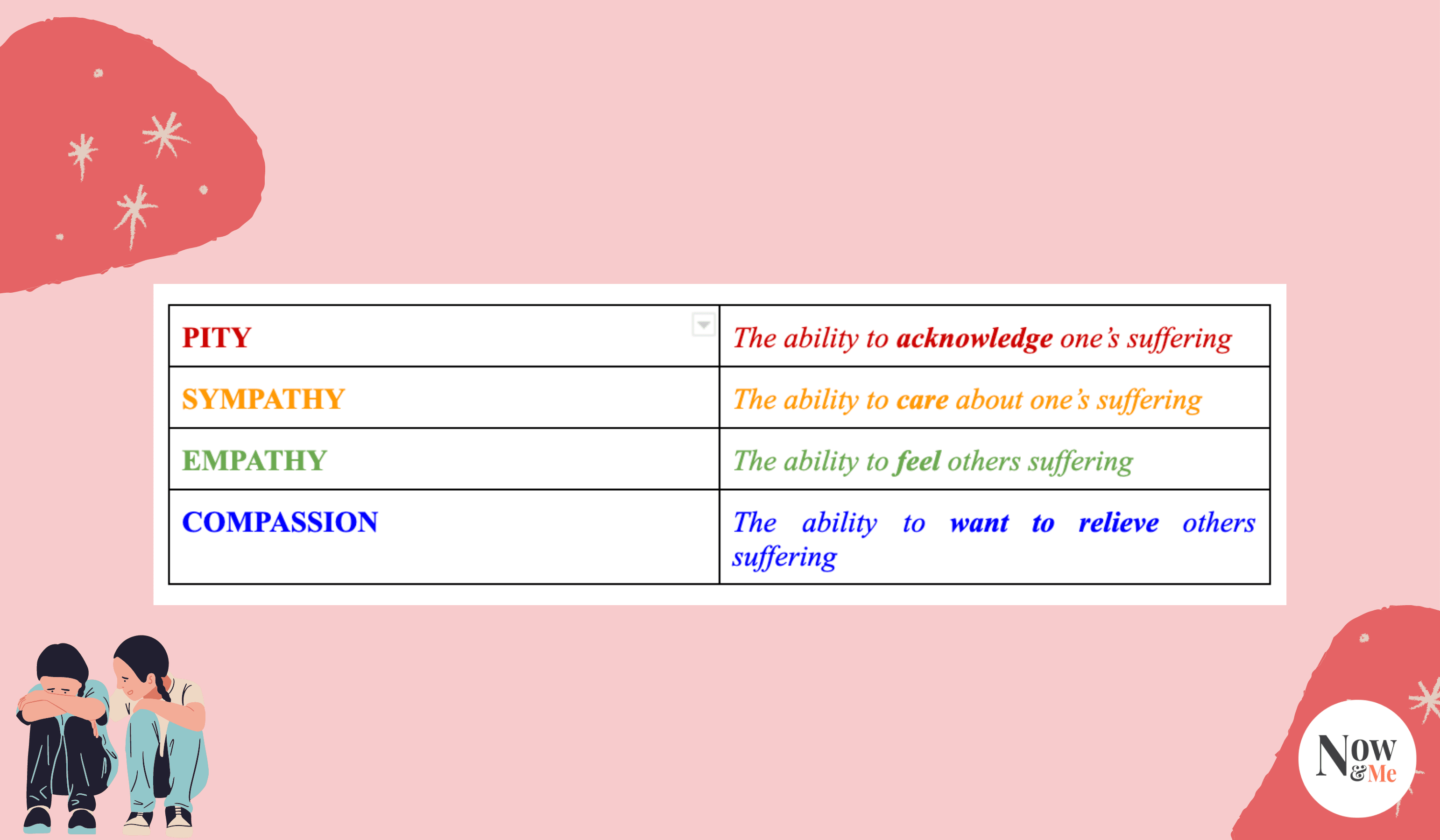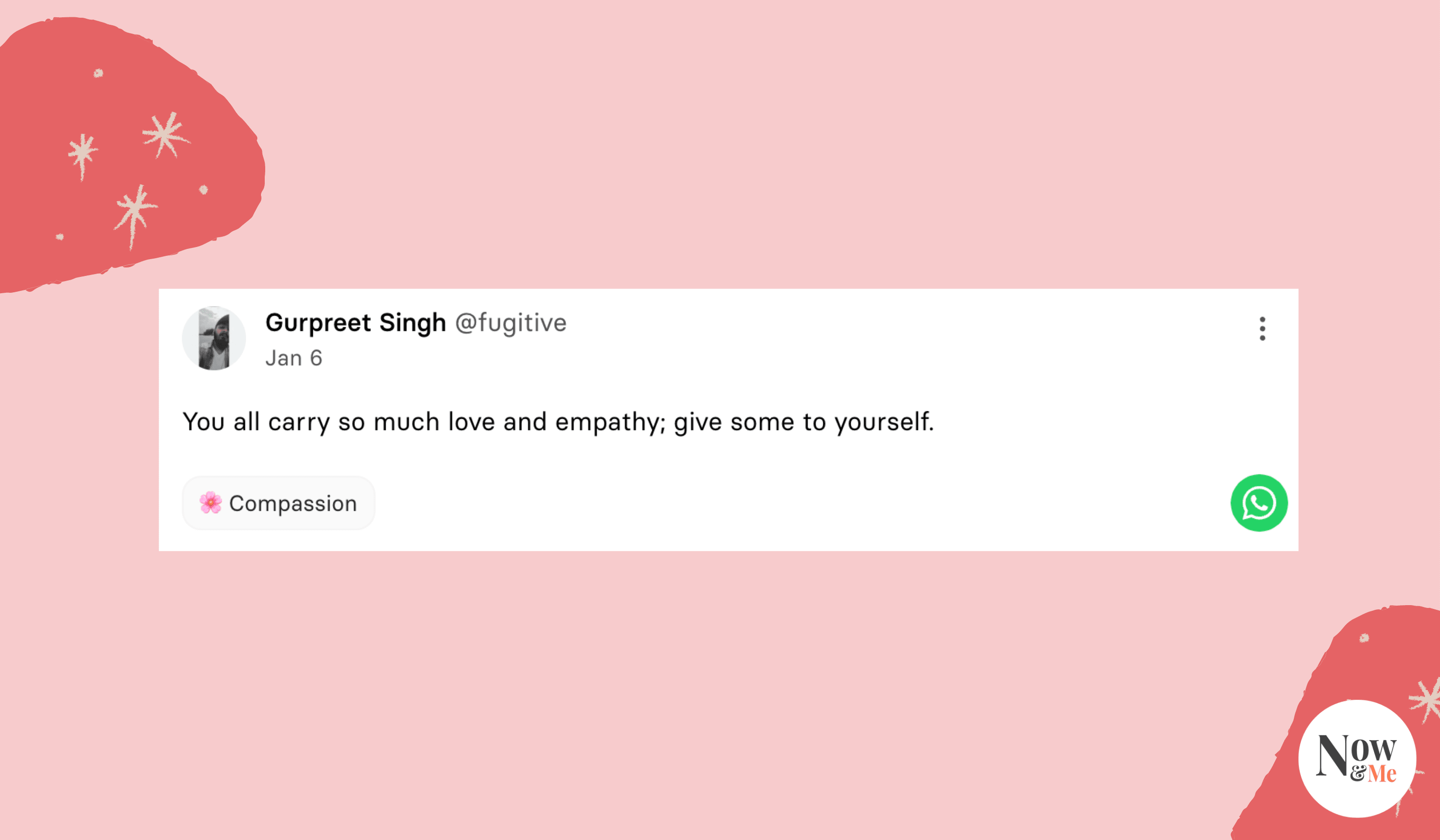“All I ever wanted was to reach out and touch another human being not just with my hands but with my heart.” ― Tahereh Mafi, Shatter Me
“The action of understanding, being aware of, being sensitive to, and vicariously experiencing the feelings, thoughts, and experience of another of either the past or present without having the feelings, thoughts, and experience fully communicated in an objectively explicit manner; also: the capacity for this”, is what empathy is.
It seems like the simplest and yet the most challenging task to do: to be more empathetic. The fact is, without the acknowledgement of the word or the label itself, we all display empathy in one way or another. In our homogenous circles, it is also easier to be more empathetic. Your friends may look like you, talk like you, and might have had some similar experiences as you. This is where empathy is easy because empathy is simply the ability to put yourself in someone else's position; to understand how they are feeling, as well as be sensitive to how someone else is feeling.
You can, in a very literal sense, imagine yourself in some of these situations because you might have gone through something similar. But as we grow, the understanding of empathy and building empathy is what ensures a more collective, humane future.
At Now&Me, this is what we often see, the way people who don't know each other, still show up for each other. It is not easy to be empathetic, but here is a step by step process to understand and integrate empathy into your life!
1. Let's understand the terminology!
All of these words hold so much weight but are often understood interchangeably. Let’s take an example: When a friend of mine found some trouble at his workplace, I could listen to him but that’s all I could do. I pitied him for not finding joy in his work, I was sympathetic because I knew he deserves the world, and I understood it because I had been in a similar situation with my manager, who didn’t care about me either. At that moment, I really wanted to be able to do something to help him out. The fact is, while these words all mean different things, they are not mutually exclusive. You could feel them all, or just one. The importance of knowing the difference is just the emotion it invokes in the person you are listening to. My friend would have appreciated my empathetic outlook, but my pity towards him might have made him feel ashamed of his situation.
Empathy is important because we all want to experience it, to feel a little more heard and seen; less judged or seen as a project.
2. Empathy is something we are born with, but we also get better at
Roth-Hanania, Davidov, and Zahn-Waxler went into the homes of 37 mostly white, middle and upper-middle class infants from 8 to 16 months and set up three distressing situations:
- The mother pretended to hit her finger with a toy hammer and be upset for one minute (and she avoided eye contact with her child in this minute so as to not bias the child’s response).
- The mother walked toward the baby and pretended to bump her knee, again showing distress for one minute (and again without making eye contact).
- The baby was shown a video of another baby crying for one minute.
All of the infants showed genuine empathy in emotional and cognitive ways. The younger babies’ feelings of concern for their mothers’ pain registered on their faces, from a fleetingly furrowed brow to sustained looks of sadness. Many cooed or made other sympathetic sounds.
With words and mobility and expression and of course, experiences, we get better at empathising, but as an emotion, we are born with it.
3. Know your reasons!
Should we be empathetic? Yes. Should we work on ourselves to be better at it? Yes. But these are still very general terms. Finding a subjective and intrinsic motivation can help empathy feel like a win and not a task. But asking yourself how you can be more empathetic and venturing into understanding those around you is worth the work. Here are some of the benefits:
- It helps us strengthen our familial and friendly relationships
- Empathy can make us feel more connected with the world
- We become more emotionally intelligent
- We become better leaders
- Empathetic bonds give us access to empathy for ourselves too.
There are no “right” or “wrong” reasons, but finding your own reason is a great start :)
4. Empathy too, is a two way street!
We cannot be unconditionally empathetic. If the person in front of us or the culture around us refuses to cooperate or extend the same emotion to us, it is very natural to feel bitter or betrayed. Social convention and contexts play a role in how empathic a person is in a given situation, regardless of the individual capacity for empathy. This is why self-evaluation becomes even more important. Is it you? Or is it the people around you?
5. The science-y part of it all!
When our brain goes to work figuring out how to be more empathetic, what it’s doing is getting the emotional centre and cognitive centre to collaborate and make sense of the situation in front of it.
The brain’s emotional centre, or limbic system, includes the amygdala and the hippocampus. This area stores feelings, experiences, and impressions. It can also perceive the feelings of others. The frontal lobe, which makes sense of behaviour at the highest level, is where the empathising happens.
Empathy = the cognitive (understanding the person’s thoughts or feelings) + the emotional (where you can share these feelings) + the compassionate (going beyond sharing concern and actively trying to reduce someone’s pain).
Just highlighting this to help you understand that it is a calculative decision and choice we make in our lives; it is not being “overwhelmed” by emotion.
How can we cultivate and develop a stronger sense of empathy?
Here are a few exercises:
a) Put Yourself in Their Shoes
Take the time to imagine yourself in the other person's situation. Try to understand what they might be feeling or experiencing based on their circumstances. This will help you by allowing you to see things from their perspective.
b) Empathetic Listening
Practice empathetic listening by giving your full attention to the person speaking and trying to understand their perspective without any judgment or interruption. Focus on their words, tone of voice, and body language to gain a better understanding of their emotions and experiences.
c) Practice Emotional Awareness and know your biases
Cultivating empathy requires being aware of your own emotions as well as your biases. Pay attention to your own feelings and reactions in different situations. Acknowledging your biases makes it easier to keep those biases in check and find ways to be more open-minded to opinions that are not similar to yours. This self-awareness will help you better understand and empathise with the emotions of those around you.
d) Seek Different Perspectives
Make an effort to expose yourself to diverse viewpoints and experiences. Engage in conversations with people from different backgrounds, cultures, and beliefs. This exposure will help you see the world through different lenses.
Empathy is not easy. But we’re all human; constantly learning and growing and changing. Embrace the process 🤗 And of course, if you make a mistake: learn the art of apologising!
Here’s to a more empathetic culture. 🌻
How Can Now&Me help?
Now&Me provides a safe and supportive platform to connect with experienced mental health and self care professionals who can offer you guidance and support.
Our peer community is welcoming, non-judgmental, and inclusive, creating a warm and supportive environment to share your thoughts and feelings.
You can interact with like-minded peers or seek guidance from experienced experts like therapists and life coaches, instantly. What are you waiting for? Download for FREE!

